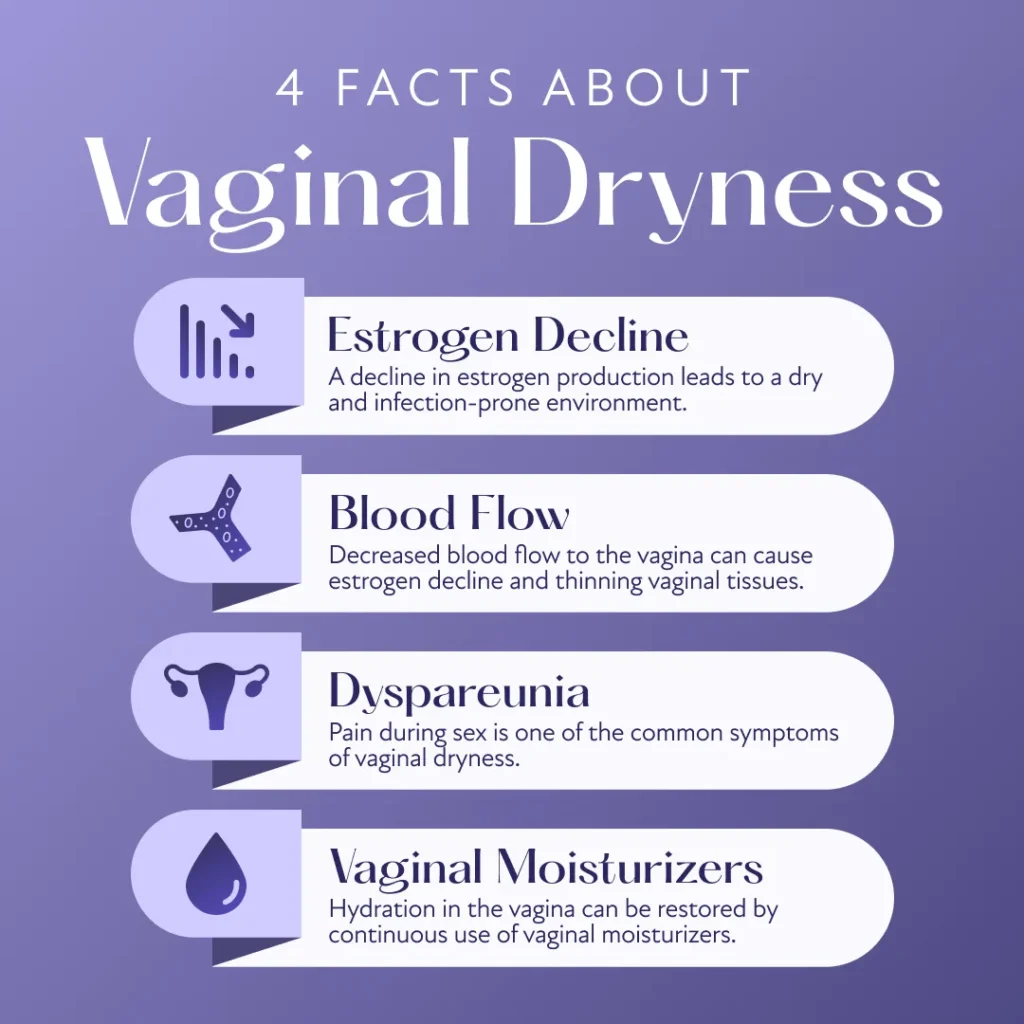Menopause is a natural and inevitable stage in a woman’s life, marking the end of her reproductive years. While many women are familiar with the common symptoms of menopause such as hot flashes, night sweats, and mood swings, there is one silent symptom that often goes unnoticed and untreated: vaginal dryness.
Vaginal dryness is a common and often overlooked symptom of menopause that can have a significant impact on a woman’s quality of life. It is estimated that up to 50% of women experience vaginal dryness during menopause, yet many are hesitant to seek help or discuss this issue with their healthcare providers.
In this article, we will explore the causes of vaginal dryness during menopause, the impact it can have on a woman’s physical and emotional well-being, and the treatment options available to help alleviate this common symptom.
Causes of Vaginal Dryness During Menopause
Vaginal dryness during menopause is primarily caused by a decrease in estrogen levels. Estrogen is a hormone that plays a key role in maintaining the health and function of the vaginal tissues. As women approach menopause, their estrogen levels naturally decline, leading to changes in the vaginal tissues.
The vaginal walls may become thin, dry, and less elastic, making them more prone to irritation, inflammation, and infection. The decrease in estrogen also affects the production of vaginal lubrication, making intercourse uncomfortable or painful for many women.
In addition to hormonal changes, other factors can contribute to vaginal dryness during menopause, including:
– Certain medications, such as hormonal contraceptives, antihistamines, and antidepressants, can affect vaginal lubrication.
– Smoking can decrease blood flow to the vaginal tissues, leading to dryness and discomfort.
– Medical conditions such as diabetes, autoimmune disorders, and certain cancers can also impact vaginal health.
Impact of Vaginal Dryness on Women’s Health
Vaginal dryness can have a negative impact on a woman’s physical and emotional well-being. The discomfort and pain associated with dryness can make sexual intercourse unpleasant or even impossible, leading to a decrease in libido and intimacy in relationships.
In addition to sexual difficulties, vaginal dryness can also cause other symptoms such as itching, burning, and irritation. These symptoms can be embarrassing and affect a woman’s self-esteem and confidence.
Furthermore, vaginal dryness can increase the risk of urinary tract infections and other vaginal infections, as the lack of lubrication can make the vaginal tissues more vulnerable to bacteria and yeast overgrowth.
Treatment Options for Vaginal Dryness During Menopause
Fortunately, there are several treatment options available to help alleviate vaginal dryness during menopause. These include:
– Hormone replacement therapy (HRT): HRT is a common treatment for menopausal symptoms, including vaginal dryness. Estrogen therapy can help restore the balance of hormones in the body, leading to an improvement in vaginal health and lubrication.
– Vaginal moisturizers: Over-the-counter vaginal moisturizers can help hydrate the vaginal tissues and provide long-lasting relief from dryness. These products are typically applied regularly to maintain moisture and comfort.
– Vaginal lubricants: Unlike moisturizers, vaginal lubricants are designed to provide immediate relief during sexual activity. These products can help reduce friction and discomfort, making intercourse more enjoyable.
– Lifestyle changes: Simple changes such as quitting smoking, staying hydrated, and practicing good genital hygiene can also help improve vaginal health and reduce dryness.
It is important for women experiencing vaginal dryness during menopause to discuss their symptoms with a healthcare provider to determine the best treatment option for their individual needs.
FAQs about Vaginal Dryness During Menopause
Q: Can vaginal dryness during menopause be prevented?
A: While it is not always possible to prevent vaginal dryness during menopause, there are steps women can take to help maintain vaginal health. Staying hydrated, quitting smoking, and using lubricants during sexual activity can help reduce the risk of dryness.
Q: Are there any natural remedies for vaginal dryness?
A: Some women find relief from vaginal dryness by using natural remedies such as coconut oil, vitamin E oil, or aloe vera gel. However, it is important to speak with a healthcare provider before trying any new treatment to ensure it is safe and effective.
Q: How long does vaginal dryness last during menopause?
A: Vaginal dryness during menopause can vary in duration and severity from woman to woman. Some women may experience dryness for a few months, while others may have symptoms for several years. It is important to seek treatment if symptoms persist or worsen.
Q: Can vaginal dryness be a sign of a more serious medical condition?
A: In some cases, vaginal dryness can be a symptom of a more serious medical condition such as vaginal atrophy or an autoimmune disorder. Women experiencing persistent or severe dryness should consult a healthcare provider for a proper diagnosis and treatment.
In conclusion, vaginal dryness is a common and often overlooked symptom of menopause that can have a significant impact on a woman’s physical and emotional well-being. By understanding the causes of vaginal dryness, its impact on women’s health, and the treatment options available, women can take control of their vaginal health and improve their quality of life during menopause.


